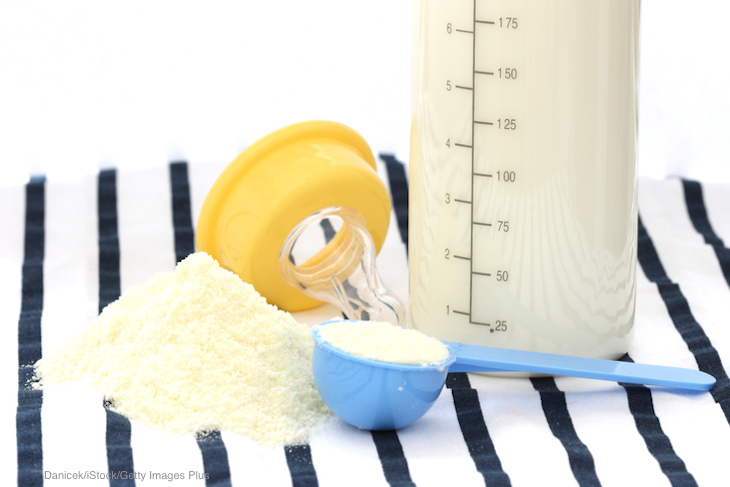Rep. DeLauro wants an investigation into the FDA handling of infant formula monitoring and recalls, more specifically the Abbott Nutrition powdered infant formula recall associated with at least four Cronobacter illnesses. Rosa Delauro (D-CT) is the chair of the House Appropriations Committee. A letter was sent to the Inspector General of the Department of Health and Human Services, asking for her assistance in this investigation.

DeLauro states, “Based on reports, I am concerned the agency acted too slowly in pulling potentially dangerous infant formula off store shelves, which may have resulted in additional illnesses and death. The delay between the September inspection and the recall raises serious questions about the FDA’s ability to adequately regulate the infant formula industry. It seems evident that the FDA could have acted sooner to prevent additional illnesses and deaths after the initial inspection. As such, I request that you investigate whether the FDA’s inspection process and regulatory actions addressed this health hazard in an effective and timely manner.”
The FDA learned of the first Cronobacter illness in September 2021. The formula was recalled on February 17, 2022, and the recall was expanded on February 28, 2022 and published on the FDA site on March 5, 2022. During this four month time period, at least four infants were hospitalized, and two babies died.
In the initial announcement, Abbott admitted that evidence for Cronobacter sakazakii was found in their Sturgis, Michigan plant, although on non-contact surfaces. And the FDA did not warn consumers about these products until an FDA inspection found the pathogen at the Abbott plant in February 2022.
Also during this inspection, records were found that showed Abbot had previously destroyed products due to the presence of Cronobacter in June 2020. This information was not included in the agency’s September 2021 report, and the FDA has not explained this discrepancy.
The letter states, “The delay between the September inspection and the recall raises serious questions about the FDA’s ability to adequately regulate the infant formula industry. It seems evident that the FDA could have acted sooner to prevent additional illnesses and deaths after the initial inspection.”
In the letter, Rep. DeLauro lists several questions she wants answered in the investigation of FDA handling of infant formula:
- Why did it take several months and additional illnesses for the FDA to return to the plant for a follow-up inspection?
- Why were the company records showing destroyed products in June 2020 omitted from the FDA’s September 2021 inspection report?
- Abbott is required to maintain production and testing records of each batch of infant formula and must provide those records to the FDA upon request. Did the agency request these records during the September 2021 inspection? If not, what is the agency’s justification for failing to do so?
- Two years prior to the September 2021 inspection, the FDA found that the Abbott facility failed to test a representative sample for Salmonella at the final stage of the production cycle. Did the agency follow-up on this issue after that inspection?
- What presence does the FDA now have at the Abbott facility following the February 2022 inspection, and what steps are they taking to ensure the infant formula manufactured at this facility is now safe?
- Does the FDA intend to conduct more frequent inspections of the Abbott facility going forward?
- Did any of the FDA inspections include a significant review of the Abbott Hazard Analysis and Critical Control Points (HACCP) plans from past incidents in order to determine its overall effectiveness, and if they were following correct procedures?
- Will the FDA start conducting its own testing of infant formula to monitor for these dangerous bacteria?
- How is the agency ensuring that all parents and caregivers, including those enrolled in the Special Supplemental Nutrition Program for Women, Infants, and Children (WIC), have access to safe and affordable infant formula?




